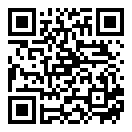Pages:
39-54
Receive Date: 2026/02/05
Accept Date: 2026/02/05
Abstract:
The critical school of Frankfurt has mainly dealt with criticizing the new society and its components. One can also trace this perspective in the critical response of this school to the impartial view of technology. This school emphasizes the need of any kind of knowledge for criticism and reform, and therefore argues that human-technology confrontation requires a critical insight and accordingly presents a critique of technology. Using an analytical-documentary method, this research studies the critical theory of technology from the point of view of Marcuse, a prominent scholar of this school, and his student, Feenberg. The results of the research suggest that there are commonalities and differences between the views of these two thinkers; both thinkers disapprove of the instrumental approach to technology, i.e. the separation of value from knowledge and technology, and the deterministic approach to technology, i.e., the unciticizability and the impossibility of changing technology, and consider technology as valuable and changeable. But they are different in the strategy toward change, i.e. the extension of art to politics and democratization of technology, the level of change, the creators of change i.e. the deprived and the suppressed classes, or the general public and the amount of hope for change.
چکیده و کلیدواژه فارسی (Persian)
Title :درآمدی بر انتقادپذیری تکنولوژی از منظر مارکوزه و فینبرگ
Abstract:
اغلب تلاش های مکتب انتقادی فرانکفورت در انتقاد از جامعه جدید و اجزای سازنده اش بوده است. می توان امتداد این نگاه را در واکنش انتقادی این مکتب، به تلقی بی طرفانه از تکنولوژی نیز ردیابی کرد. این مکتب، بر نیازمندی هر نوعی از دانستن به نقادی و اصلاح تأکید می ورزد و با همین مبنا، رویارویی انسان با تکنولوژی را نیازمند بینشی انتقادی می انگارد و از این منظر، به نقد تکنولوژی ورود می کند. این پژوهش، با روش تحلیلی ـ اسنادی به انتقادپذیری تکنولوژی از دیدگاه مارکوزه از دانشمندان مطرح این مکتب و شاگردش فینبرگ پرداخته است. نتایج پژوهش حاکی از وجود اشتراک ها و تفاوت هایی میان دیدگاه این دو اندیشمند است؛ هر دو اندیشمند رویکرد ابزارانگاری تکنولوژی یعنی جدایی ارزش از دانش و تکنیک و رویکرد جبرانگاری تکنولوژی یعنی نقدناپذیری و عدم امکان تغییر تکنولوژی ها را نادرست و تکنولوژی را ارزش بار و تغییر پذیر می دانند. اما در راهبرد تغییر یعنی گسترش هنر به سیاست و دموکراتیزه کردن تکنولوژی، سطح تغییر، مجریان تغییر یعنی طبقات محروم و رنج کشیده و یا عموم مردم و میزان امید به تغییر با یکدیگر متفاوتند.
References:
- آرون، ريمون، 1387، مراحل اساسي سير انديشه در جامعهشناسي، ترجمة باقر پرهام، چ نهم، تهران، علمي و فرهنگي.
- آلاحمد، جلاال، 1392، غربزدگی، چ دوم، تهران، پیر امید.
- باتومور، تام، 1373، مکتب فرانکفورت، ترجمة محمود کتابی، اصفهان، نشر پرسش.
- پارسانیا، حمید، 1389، حدیث پیمانه پژوهشی در انقلاب اسلامی، قم، نشر معارف.
- توکل، محمد، 1390، جامعهشناسی تکنولوژی، تهران، جامعهشناسان.
- حسني، سیدحمیدرضا و همكاران، 1390، علم دینی؛ دیدگاهها و ملاحظات (گزارش، تبیین و سنجش دیدگاههای متفکران ایرانی در باب چیستی، امکان و ضرورت علم دینی)، قم، پژوهشگاه حوزه و دانشگاه.
- دوویریس، مارک جی، 1389، آموزش دربارة تکنولوژی، ترجمة مصطفی تقوی و محبوبه مرشدیان، تهران، دانشکده صدا و سیما.
- فینبرگ، آندرو، 1383، «مارکوزه یا هابرماس دو منتقد تکنولوژی»، ترجمة عباس قنبری و مصطفی امیری، نامه فرهنگ، ش 54، ص 64-81.
- کوزر، ليوئيس، 1388، زندگي و انديشه بزرگان جامعهشناسي، ترجمة محسن ثلاثي، چ پانزدهم، تهران، گلرنگ يکتا.
- گیلیس، دانالد،1390، فلسفه علم در قرن بیستم، ترجمة حسن میانداری، چ چهارم، تهران، سمت.
- مارکوزه، هربرت، 1362 انسان تکساحتی، ترجمة محسن مویدی، چ سوم، تهران، امیرکبیر.
- ـــــ ،1380، گفتاری در رهایی، ترجمة محمود کتابی، اصفهان، نشر پرسش.
- ـــــ ، 1357، «صنعتی شدن و سرمایهداری در نقد وبر»، ترجمة یوسف نراقی، نگین دی، ش 162، ص 329-350.
- میچام، کارل، 1388، فلسفه تکنولوژی چیست؟، ترجمة مصطفی تقوی و همكاران، تهران، مؤسسه انتشاراتی روزنامه ایران.
- نوذری، حسینعلی، 1394، نظریه انتقادی مکتب فرانکفورت در علوم اجتماعی و انسانی، چ چهارم، تهران، نشر آگه.
- هایدگر، مارتین، 1373، «پرسش از تکنولوژی»، ترجمة شاپور اعتماد، ارغنون، ش 1، ص 1-30.
- Feenberg, Andrew, 1991, Critical Theory of Technology, New York, Oxford University Press.
- _____ , 1995, Alternative Modernity: The Technical Turn in Philosophy and Social Theory, LosAngeles, University of California Press.
- _____ , 1999, Questioning Technology, New York, Routledge.
- Stump, David J, 2006,” Rethinking Modernity as the Construction of Technological Systems” in Democratizing Technology: Andrew Feenberg's Critical Theory of Technology, ed. T. Veak. State University of New York Press.
Cite this article:
RIS
Mendeley
BibTeX
APA
MLA
HARVARD
VANCOUVER
APA | MLA | HARVARD | VANCOUVER
Mariji, Shamsollah, Mohaddes, Alireza.(2026) An Introduction to the Criticizability of Technology from the Perspectives of Marcuse and Feenberg . Ma`rifat-e Farhangi Ejtemai, 9(4), 39-54
APA | MLA | HARVARD | VANCOUVER
Shamsollah Mariji; Alireza Mohaddes."An Introduction to the Criticizability of Technology from the Perspectives of Marcuse and Feenberg ". Ma`rifat-e Farhangi Ejtemai, 9, 4, 2026, 39-54
APA | MLA | HARVARD | VANCOUVER
Mariji, S, Mohaddes, A.(2026) 'An Introduction to the Criticizability of Technology from the Perspectives of Marcuse and Feenberg ', Ma`rifat-e Farhangi Ejtemai, 9(4), pp. 39-54
APA | MLA | HARVARD | VANCOUVER
Mariji, S, Mohaddes, A. An Introduction to the Criticizability of Technology from the Perspectives of Marcuse and Feenberg . Ma`rifat-e Farhangi Ejtemai, 2026; 9(4): 39-54
 / Associate Professor at the Department of Sociology, Bagher-ol-ulum University / mariji44@bou.ac.ir
/ Associate Professor at the Department of Sociology, Bagher-ol-ulum University / mariji44@bou.ac.ir / PhD Student of the Philosophy of Social Sciences, Bagher-ol-oum University / mohaddesalireza@gmail.com
/ PhD Student of the Philosophy of Social Sciences, Bagher-ol-oum University / mohaddesalireza@gmail.com



